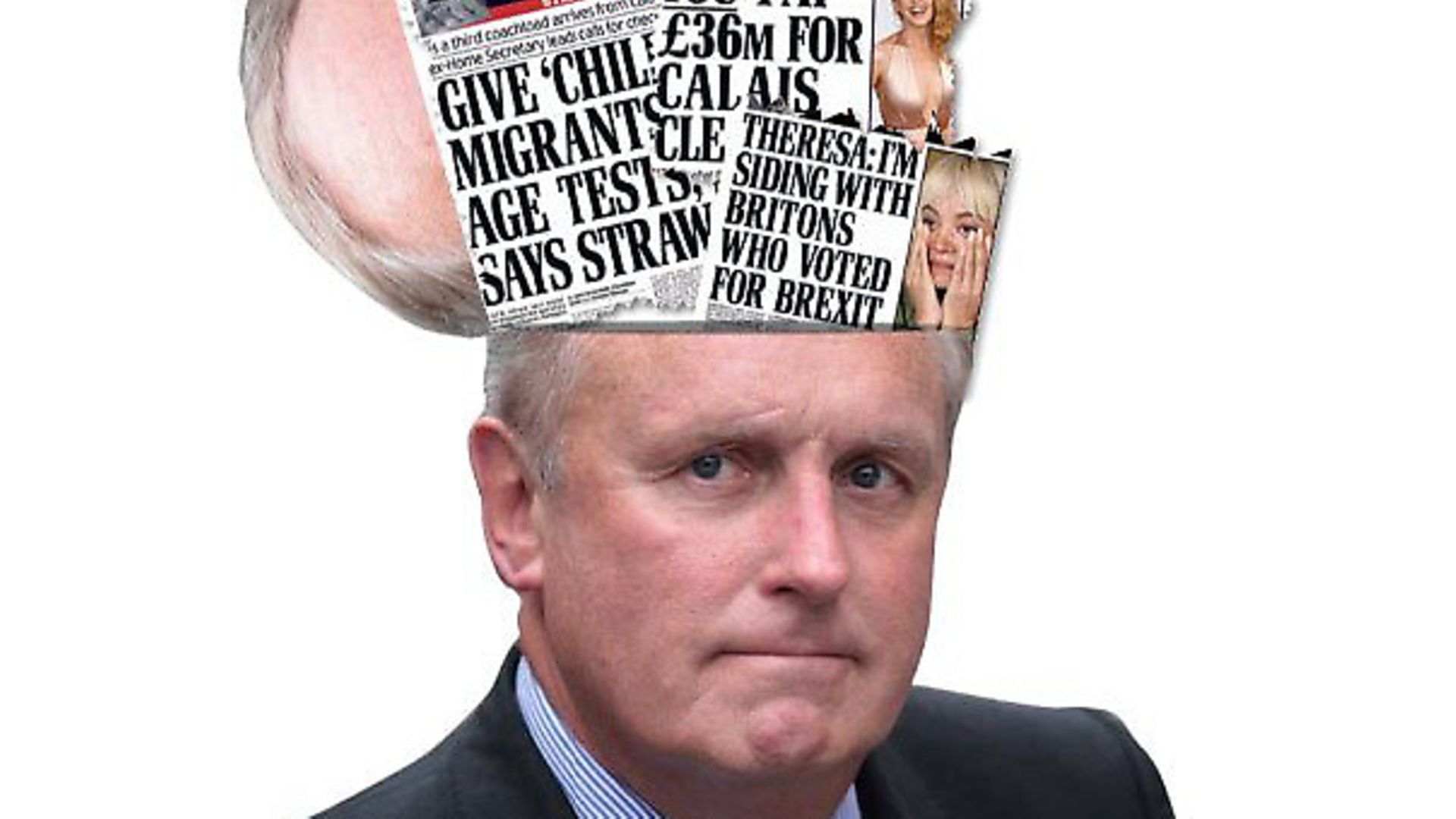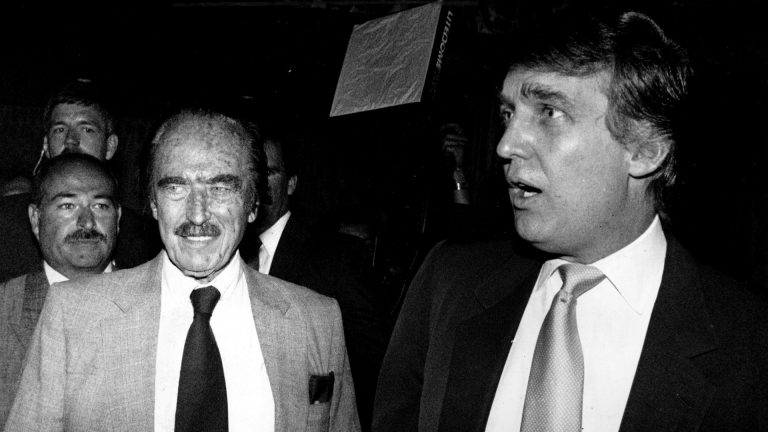
Former tabloid boss Paul Connew offers a glimpse inside the mind of an editor
The second I finished reading Tony Blair’s article in last week’s The New European on the possibility of a second Brexit referendum I knew what was to come.
And as surely as night follows day the indignant fury of the pro-Brexit newspapers erupted.
It was followed by a more nuanced coverage on television and radio and a social media debate that would reflect reasoned argument on both sides at its cyberspace best and ranting, raving lunacy from the extreme troll tendency of either persuasion at its worst.
Foremost among the newspaper angry brigade, predictably enough, was the Daily Mail with a leader, headlined ‘Don’t preach to us on democracy, Mr Blair’ and a double-page Saturday essay spread by its prominent polemicist, Stephen Glover, screaming ‘This Age of Lies’ that combined an attack not just on Blair himself but another favoured target – the BBC – for having the temerity to give the former Prime Minister airtime for a (far from sycophantic) interview about his article. Complete with a mock-up of Blair as Pinnochio with a very long nose that was disappointingly short on wit, given that the ‘Tony Bliar’ theme is a bit hackneyed now and I’d anticipated, given the timing, something featuring a Halloween horror mask.
By contrast, The Sun seemed to tactically decide against devoting that much room to the Blair contribution, beyond a routine news story and a short, savage Sun pun leader headlined, ‘Hot Blair’. But veteran Eurosceptic political columnist Trevor Kavanagh’s Monday column did kick off by comparing ‘Britain’s splendid new growth figures – the best in the West’ to a ‘punch in the guts for Tony Blair and his old EU mucker Peter Mandelson’. But I’d also suspect that, privately, Rupert Murdoch is also acutely aware that a hard Brexit could ultimately turn out to feel like a combined punch in the guts and a wallet mugging for many Currant Bun buyers and their families.
At this point, perhaps, I should declare a special conflict of interest. As a media commentator and former tabloid editor, I’m a great defender of a raucous, rowdy, partisan British newspaper tradition and its right to mock and savage public figures.
Funnily enough, I read Blair’s The New European article the same day I’d done radio interviews defending press regulator IPSO’s decision to clear Sun columnist Kelvin MacKenzie’s controversial column on hijab-wearing Channel 4 News presenter Fatima Manji on the grounds that free expression includes the reasonable right to offend. And, without wishing to sound like a tabloid Voltaire, I was defending MacKenzie’s column, and IPSO’s judgement, even though I personally disagreed with virtually every word MacKenzie wrote on the subject.
By the same token I couldn’t begrudge the pro-Brexit prints the viciousness and vitriol with which they greeted Tony Blair’s Brexit intervention. It was more the logic, or lack of it, than the language I took offence at; the paradoxical notion that newspaper editors like the Mail’s Paul Dacre and the Sun’s Tony Gallagher, with whom I wholeheartedly agree on press freedom issues, should be damning a man three times elected Prime Minister for daring to exercise his right of free expression on the most momentous question Britain has faced since 1945.
The pro-Brexit prints were eager to run Theresa May’s swift slap down of Blair’s second referendum sentiment, although the Prime Minister did have the good grace to add that he was ‘fully entitled to his opinion’. But they either ignored, or downplayed, the Guardian’s leaked tape scoop revealing how, on the eve of the referendum, May delivered a private speech to Goldman Sachs warning that businesses would quit Britain if Brexit won. Not only does it sit uncomfortably with the hard Brexit tone she’s now struck (at least in public), but it also prompted a couple of pro-Remain Tory MPs of my acquaintance to suggest – sotto voce – that ‘it proves Theresa’s much-trumpeted political principle runs second to her career ambition’.
Doubtless the pro-Brexit newspapers will go into leader column hysteria over the historic High Court decision defeating the Government over triggering Article 50, with charges of ‘constitutional crisis’ and ‘subverting the will of the British people’ and demands that the Supreme Court should overturn it.
For me, however, it was an overwhelmingly sensible decision that plays into the case for parliamentarians to debate, forensically stress test May’s Brexit strategy and the EU’s response to it but NOT to ultimately block Article 50 or try to overturn the referendum result themselves. Instead it should inspire the majority of them to do the decent, democratic, commonsense thing and support a second referendum when the electorate know the terms, conditions and impact of Brexit better and can exercise their vote to reaffirm it or reject it. And my money this time would be on the latter.
At this point another declaration of interest, or two, is appropriate. I’m a lifelong (non Corbynista) Labour supporter who still respects Tony Blair’s talent for winning elections and significant domestic policy achievements while having fallen out big time with him (and my old colleague Alastair Campbell) over the Iraq War and its aftermath. I also have a fair degree of sympathy for the line in the Daily Mail’s editorial that accused the former PM of ‘selling his soul to some of the world’s worst despots’.
That said, I’m also a columnist for international media/marketing website The Drum and was one of the very few pundits to predict why, where and how Brexit would narrowly win on June 23, even as I argued strongly for a Remain victory. (For the record I’ve never been so unhappy to be proved right. Although I’m much happier to have forecast in The Drum that one legacy of it all would be The New European proving the soothsayers wrong and outliving its own original life expectancy!).
That referendum prediction was based on my own DIY ‘research’ among personal contacts in traditional Labour heartlands in the North and the Midlands; grassroots politicians, union leaders, small business folk, friends and family who were consistently telling a very different to the national opinion polls. Whether Leavers or Remainers, their feedback during the last couple of weeks before polling days was that the mood music had swung decisively Brexit’s way and that the pollsters and the bookmakers were failing to detect it.
Interestingly, since then I’ve been startled by the rising feedback from Regrexiteers, including several from my own DIY survey, wishing they’d voted the other way and expressing support for a follow-up referendum when the terms and impact are fully known and better understood.
Their reasons are many and varied. But they include having wanted to give the Establishment (aka Cameron/Osborne) a big scare, in the belief that a narrow Remain victory would be preferable to a big one, the slump in the value of the pound, and belated scepticism over Leave leaders campaign hints that the EU would be forced to give us a ‘great deal’ on single market access.
Then there are those no longer seduced by the side of a bus NHS bonanza fantasy. Not to mention those for whom immigration control was the dominant motivating factor and who now wonder whether, in reality, the scale of reduction will be outweighed by the rising costs of food and energy bills, filling up the car with petrol, growing concerns over job security or heading off for the annual sunshine break (with attendant/boring visa costs) in the Med.
Plenty, too, from guilt-ridden, pro-European young voters who – more fool them, to be sure – didn’t bother to turn out because they swallowed the myth that Remain had it in the bag and now admittedly, in tabloid-speak, qualify as ‘Young Bremoaners’ protesting that older generations with less to lose, and ‘Little Britain’ mindsets, have decided their futures.
But it’s a lesson, I strongly suspect, they may have taken on board sufficiently to make the effort to exercise their mandate if a second referendum were to be on offer. For what it’s worth, I also hear that one of David Cameron’s biggest regrets is that he didn’t fight harder to support calls for the EU referendum voting age to be lowered to 16, as it had been for the Scottish independence referendum.
A common thread also echoed the September study by the Electoral Reform Society that reported 46% of voters felt ‘ill-informed’ during the campaign and branded the quality of both Leave and Remain’s campaigns ‘dire’ and ‘misleading’.
And there are even those who complain that they were persuaded, or at least influenced, by the ‘power and passion’ of the pro-Brexit newspapers. Now, for what it’s worth, I don’t subscribe to the theory that newspapers can actually decide the result of general elections, or referendums. It wasn’t even true when the Sun famously claimed ‘it was the Sun wot won it’ when John Major surprisingly defeated Neil Kinnock, and it’s even less plausible in the age of declining circulations and the emergence of social media. But, in a tight finish like June 23, it’s not impossible that mainstream media coverage exerted some influence and how much so could yet make for an interesting, in-depth media academic study.
But all of the above plays into my firm conviction that, like him or loathe him, Blair was not only fully entitled to enter the debate via The New European, but absolutely right to argue the case for a possible second referendum.
Forget the opening sentence of the Daily Mail’s fiery leader, ‘Isn’t it strange how politicians are such passionate, unswerving champions of democracy – until the democratic process comes up with a result they don’t like?’. Or it’s sarcastically dismissive, ‘Having so obviously come up with the wrong result, he said the recalcitrant voters should be sent back to the ballot box to think again. How very democratic!’.
Perish the thought that Cameron’s absurdly simplistic binary referendum – without the democratic opportunity to vote when the public know what ‘Brexit means Brexit’ really means – was all about managing Tory party splits and countering the UKIP threat rather than offering either informed choice, and at the price of denying them the opportunity for a second opinion.
Perish the thought too that those vociferously pro-Brexit newspapers resenting Blair stepping into the debate are afraid he might just be reflecting a subtle, but growing shift, in public mood along the lines of feedback I’ve been receiving.
Although the majority of post-referendum polls still show a narrowing support lead for Brexit, an October one from the British Election Study, an academic group dedicated to voting trend research, suggested that the number of ‘Regrexits’ now outnumbered the margin of victory for Leave in the 52-48% referendum outcome and, for me, that adds weight to the case for another vote before we depart the EU irrevocably and irreversibly.
And if I’m putting my forecasting hat on again, I’d take a cautious, long-range punt that the result would swing the other way by at least a similar margin. I’d also wager that the turnout would exceed the 33.5million (72%) we saw this summer.
Perish the thought that too many politicians, right, left and centre, are too scared of newspaper attacks accusing them of ‘insulting the electorate’ to echo Blair’s argument. (OK, there are honourable exceptions such as Nick Clegg and Tim Farron). Of course, it’s right that both houses of parliament should debate and vote on the detail and terms of Brexit, but I’m not arguing that MPs or Lords should be able to overturn the referendum result. Nor do I support the result being challenged through the courts.
Given the huge voter turnout on June 23, I’d contend that only a second referendum makes sense.
Which is, in effect, all that Blair is really arguing when he wrote: ‘The issue is not whether we ignore the will of the people, but whether, as information becomes available, and facts take the place of claims, the ‘will’ of the people shifts. Maybe it won’t. In which case people like me will have to accept it. But surely we are entitled to try to persuade, to make the argument, and not to be whipped into line to support a decision we genuinely believe is a catastrophe for the country.’
It isn’t so different from one Regrexiteer who emailed me to say: ‘Now I think June 23 was more of a blind date… but blind dates rarely lead to a happy marriage, let alone a forced marriage when you’ve got to know each other better and decide you don’t really fancy tying the knot.’
Or another who said: ‘What if the majority of people change their minds when they know the full score in two or three years and the polls reflect that? Would we go ahead with Brexit based on an outdated result? It would be like having a general election with the winners not taking office for years, regardless whether the electorate still supported them.’
Different language, but not dissimilar to the key points and underlying spirit of the Blair argument. Call it democratic, call it freedom of expression if you like, or just label it plain old common sense.
Paul Connew is a media commentator, broadcaster, PR adviser and former editor of the Sunday Mirror and deputy editor of the Daily Mirror. As a media commentator for The Drum, the international media/marketing website, he argued for Remain but accurately predicted why and where Brexit would narrowly win on June 23








